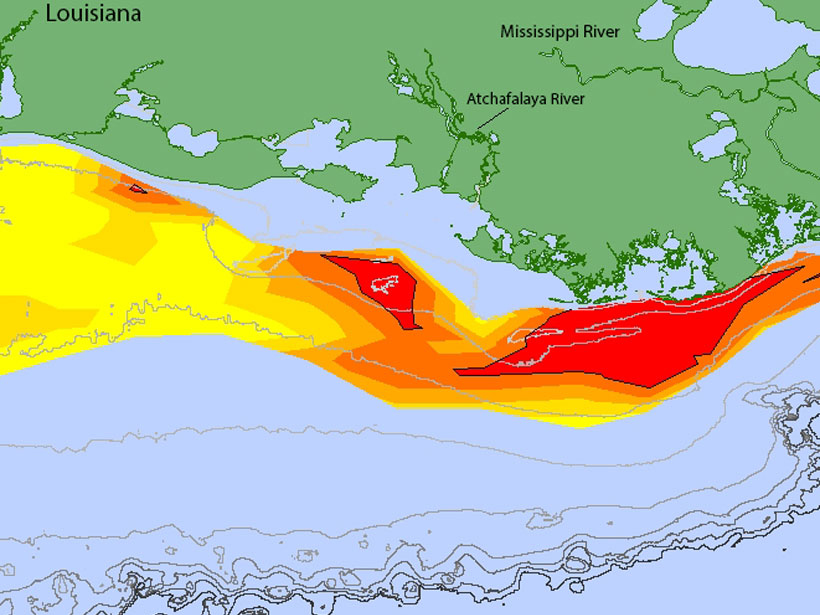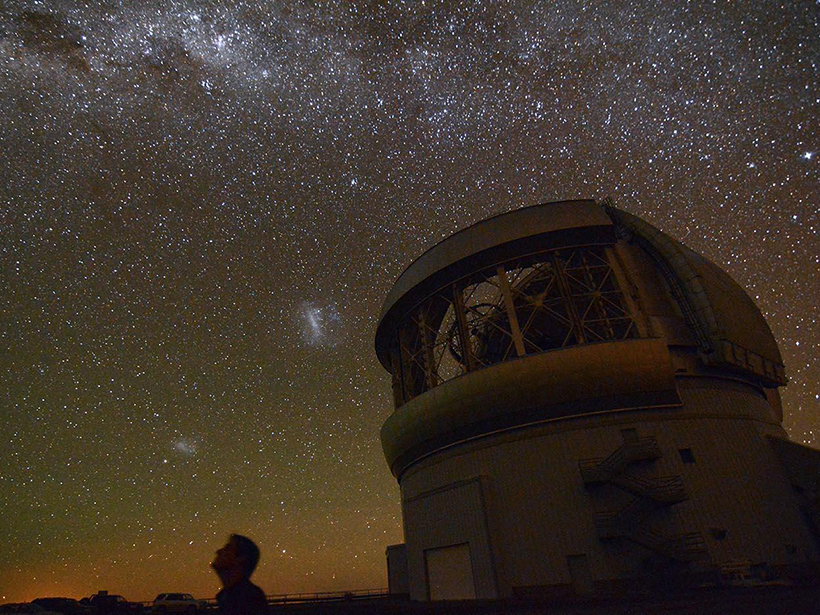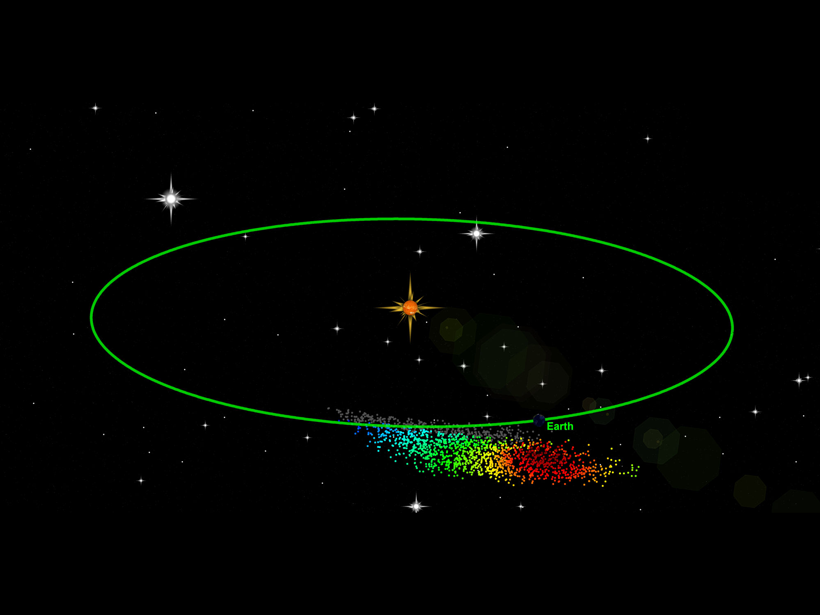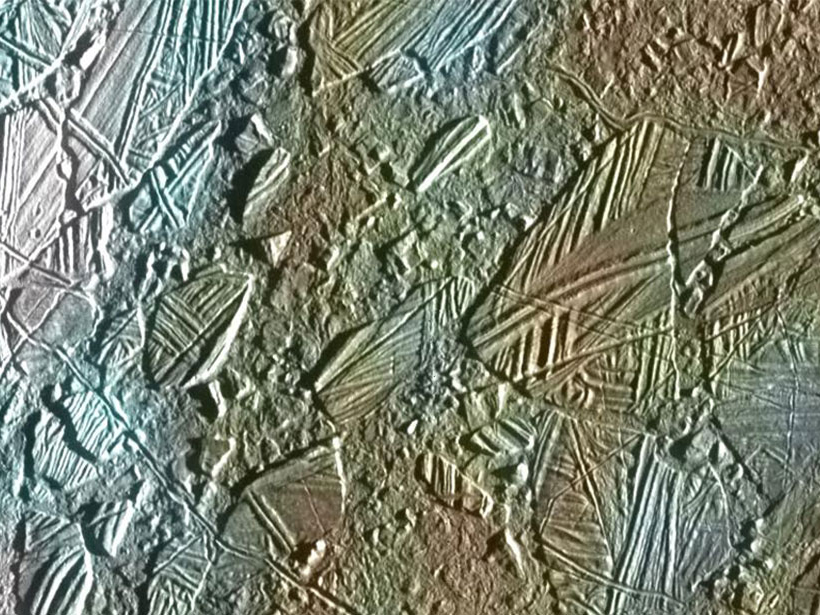Great Britain’s largest impact crater likely lies in the Scottish Highlands. Scientists dispute whether it’s to the west or the east.
News
Gulf Dead Zone Looms Large in 2019
A new forecast predicts widespread hypoxia after a wet Midwest spring.
Giant Planets and Brown Dwarfs Form in Different Ways
Once thought to be part of the same population, planets larger than Jupiter and “failed stars” likely grow via different mechanisms, the Gemini Planet Imager Exoplanet Survey has shown.
Legislators Introduce Climate Emergency Resolution
The resolution, which legislators hope the House of Representatives will approve, calls for a massive mobilization to halt, reverse, mitigate, and prepare for the consequences of climate change.
New Proof That Accretion Disks Align with Their Black Holes
In the most detailed and highest-resolution black hole simulation to date, an international team of researchers showed the Bardeen-Petterson effect for the first time.
Fireballs Could Provide Clues to an Outstanding Meteor Mystery
Fireballs in the summer sky may signify a chance to probe their mysterious origin.
Mmm, Salt—Europa’s Hidden Ocean May Contain the Table Variety
Hubble Space Telescope observations suggest that sodium chloride exists in young, geologically active regions on Europa, likely fed by upwelling from the moon’s subsurface ocean.
University of Alaska Faces Budget Crisis
The state legislature decides this week whether to override the governor’s $130 million cuts that could devastate the university and its world-class research.
A North Carolina Lake’s Long Legacy of Coal Ash Spills
A new case study suggests that Sutton Lake has been contaminated by multiple coal ash spills, most of them apparently unmonitored and unreported.
Antibiotics Are Flooding Earth’s Rivers
The drugs can lead to drug-resistant bacteria and deadly infections.










